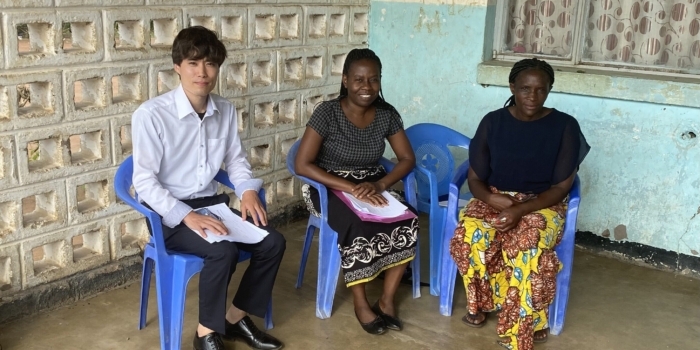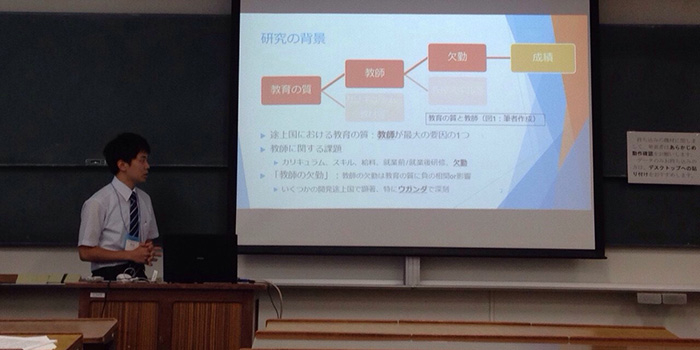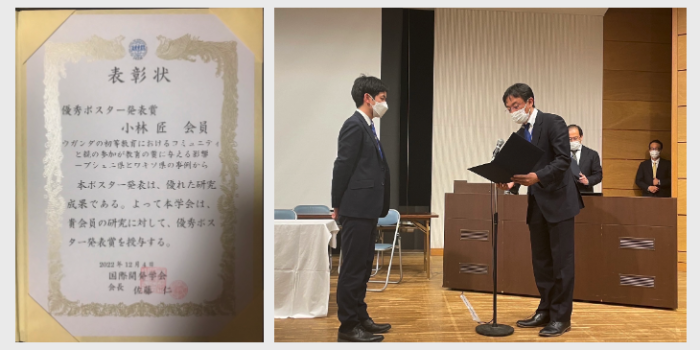From January 3rd to March 3rd, 2024, I carried out field research at the University of Malawi, Centre of Educational Research and Training (CERT). I was engaged with the following research activities to investigate how married women participate in the intrahousehold decision-making and to explore the reason how they can express her voices for children’s schooling in Malawi primary education. First, I elaborated the research proposal and prepared for the field work. Second, I participated in the retreat conference conducted by the CERT. Third, I visited three government primary schools and did individual interviews and questionnaire surveys with married women.
In the first research activity, I presented my research proposal and the field survey plan to Dr. Dorothy Nkhata, who is the head of CERT, Ms. Esme Kadzamira and Ms. Lizzie Chiwaula, who are research fellows of CERT. Based on their comments and suggestions, I revised them and did a literature review to sharpen up and prepare well for the field research. In addition, I have created questionnaires and interview scripts in both English and the local language while keeping in mind the Malawian context under the guidance of the staff. Moreover, literature review and discussions with Malawians allowed me to deepen my understanding of kinship structures in Malawi (Matrilineality, Patrilineality, Matrilocality, and Patrilocality) from both an academic perspective and a practical perspective that incorporated local circumstances.
In the second research activity, I have participated in the retreat conference conducted by the CERT. I was able to learn how researchers carry out joint research projects as a team through medium-term plans and strategies for research projects and collaboration among other stakeholders, such as international organizations and research institutions. Moreover, I had a good chance to exchange my opinions with researchers and practitioners, which was a valuable opportunity to add great value to my academic networking as a researcher.
In the third research activity, I did qualitative research to clarify how married women participate in the intrahousehold decision-making and the reason why they can express their voices for children’s schooling in Malawi primary education. Specifically, I visited three public schools in Zomba rural district and carried out individual interviews and questionnaire surveys with 15 married women. There was a tradition of wives living together in their parents’ residence after marriage and there is no recognition that their husband only made decisions within the household unlike in patrilineal societies. Thus, this survey investigated the negotiation process of intrahousehold decision-making through wives’ bargaining even if there was a different opinion between wife and husband. I would like to continue to analyze the relationship between factors such as wife’s higher educational level, improved her financial strength, good reputation, and close relationship with their relatives, that may lead to specific decision-making processes within the households.
Finally, I would like to express my sincere gratitude to Head of CERT Dr. Dorothy Nkhata, Research Fellow Ms. Esme Kadzamira, Ms. Lizzie Chiwaula, and other staff for kindly accepting me to do the field research at the CERT in Malawi. Furthermore, I sincerely appreciate my academic supervisor, Professor Keiichi Ogawa for kindly providing me with a valuable and wonderful opportunity in Malawi.
Authored by Yudai Ishii (Docotral Student)
Related






